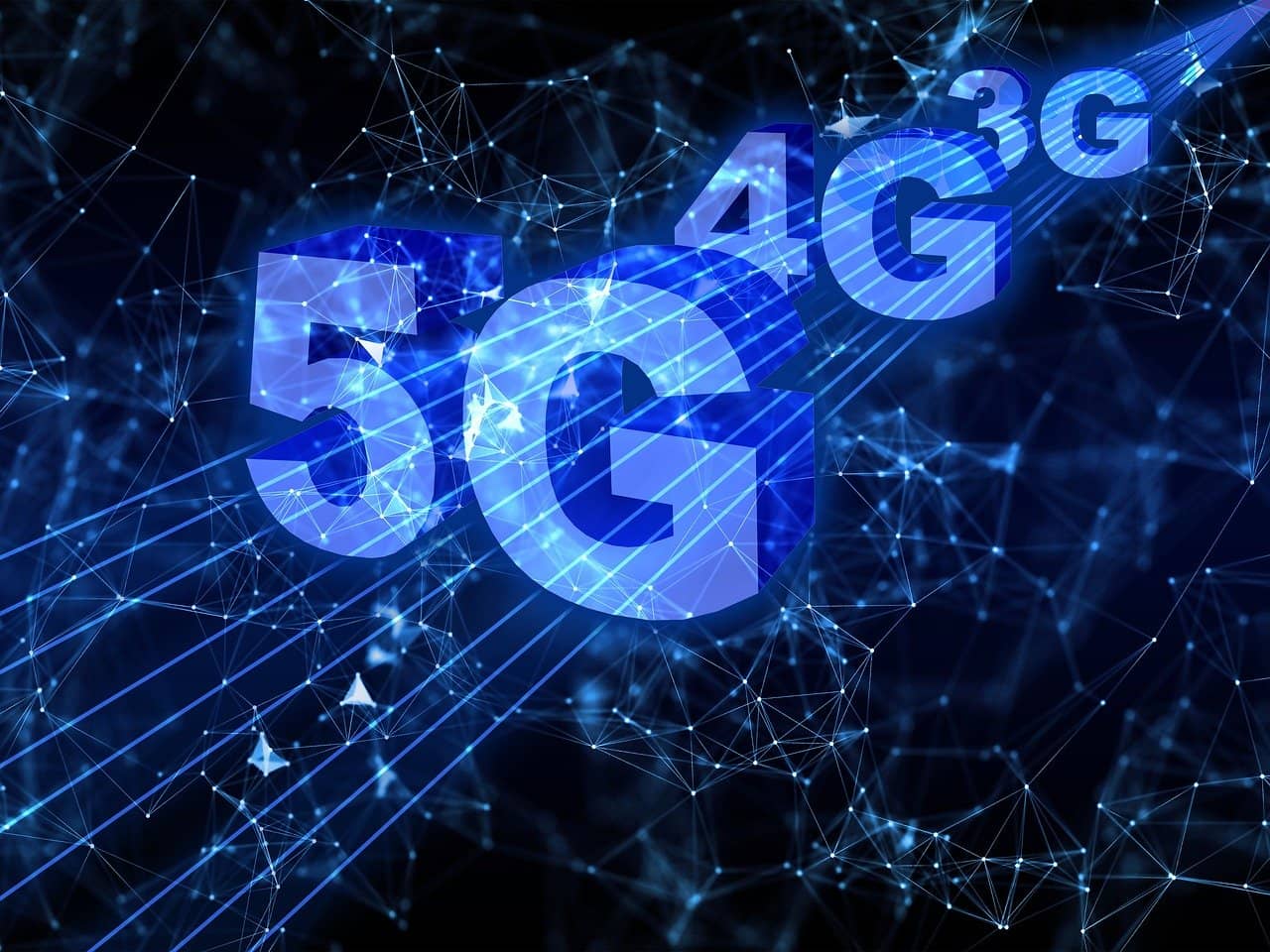5G, or fifth-generation, is a high-speed wireless mobile network after global wireless standards – 1G, 2G, 3G, and 4G. It is specially designed to provide extremely high speed and allow everyone and anything to connect virtually, including machines, objects, and devices. But have you ever thought about the 5G speed?
Well, it is surprising to know that 5G speed is 100 times faster than 4G. Also, this 5G network is far better and faster than the internet speed you receive from your wired broadband connection. It operates across all types of band spectrums – low, mid, and high. In contrast, all earlier generations leveraged only the low-band spectrum.
Everyone today is talking about how 5G is changing the world of the internet and providing fantastic user experiences. It is equally important to understand 5G speed – how it is helpful to your computer system and other devices and how fast it is when downloading or streaming content.
This article will help you understand how fast the fifth-generation mobile network is (5G speed) with some real-world examples.
Understanding 5G Speed
A network is considered 5G if it complies with the rules and guidelines designed by governing authorities such as 3GPP. Among these rules and guidelines, the speed of downloads and uploads is one of the significant factors.
This means a 5G network has download and upload speed thresholds called minimum peak download rate and a minimum peak upload rate.
The download speed is the rate at which the network transmits data to a device. In contrast, the upload speed is the rate at which a device transmits data to a network or any desired endpoint, such as the cloud or other devices).
Here are the 5G peak download and upload speeds:
- 5G peak download speed: 20 Gigabits per second (Gbps), which is equivalent to 20,480 Megabits per second (Mbps).
- 5G peak upload speed: 10 Gigabits per second (Gbps), which is equivalent to 10,240 Megabits per second (Mbps).
Hence, any network is considered 5G if it provides the above minimum download and upload speed rates.
Note: The above speeds are measured in bits and not bytes. Bits and bytes are completely different.
Let us now observe these speed rates in bytes.
Converting Gigabits to Megabytes and Gigabytes
You might be thinking why there is a need to convert gigabits to gigabytes and megabytes. The reason is that the units of network speed are mostly measured in terms of bytes instead of bits.
Now, to convert the above 5G speeds into megabytes and gigabytes, we simply need to divide them by 8. This is because 8 bits = 1 byte.
Note: Each byte consists of 8 bits. A bit is the smallest unit of storage and stores only 0 or 1.
The following are the same aforementioned 5G speeds expressed in bytes:
- 5G peak download speed: 2.5 Gigabytes per second (GBps), which is 2,560 Megabytes per second (MBps).
- 5G peak upload speed: 1.25 Gigabytes per second (GBps), which is equivalent to 1280 Megabytes per second (MBps).
Minimum Latency Requirement
In terms of a mobile network, the term latency is the time between the cell tower sending data and the destination device, like mobile phones receiving that data.
The 5G network requires minimum latency to be ultra-fast. The ideal minimum latency for 5G is 4 milliseconds. However, this latency can drop to 1 millisecond for ultra-reliable and low-latency communications (URLLC) and other communication forms. The URLLC form of communication can provide 99.99% of reliability with a latency of single-digit milliseconds.
Note: When it comes to 4G, the latency is between 50 to 100 milliseconds, which is twice the latency the 3G network provides.
Actual 5G Network Speeds
The aforementioned 5G speeds – download and upload speeds – are applicable in ideal conditions with no latency or interference. It holds true only if your device is connected to the 5G cell and no others.
Do you know?
A single 5G cell can connect at least one million devices within 1 square kilometre. All the devices on the same cell have equal download and upload speeds.
Normal mobile users will not experience the peak upload and download speeds mentioned above. It is possible for your device to attain those peak 5G speeds only if you use a dedicated, fixed wireless access system. This system helps you not split the speed with others.
How Much is 5G Faster than 4G?

Theoretically, the 5G network provides a speed of 10Ggps, which is 100 times faster than the 4G network. The average download speed of 5G measures between 1.4 to 14 times faster than 4G.
The following table highlights the average speed of all generation networks:
| Generations | 2G | 3G | 3G HSPA+ | 4G | 4G LTE-A | 5G |
| Average Speed | 0.3 Mbps | 7.2 Mbps | 42 Mbps | 150 Mbps | 300 Mbps – 1 Gbps | 10 Gbps |
Undoubtedly, 5G provides the maximum speed. Consider you wish to download a movie of size 3 GB. Let us see how much time the different networks take to download a movie of 3 GB size.
- 3G: 1 hour, 8 minutes
- 4G: 40 minutes
- 4G LTE: 27 minutes
- 5G: 35 seconds
Factors Affecting 5G Speed
There are many factors affecting the 5G network speed. The significant factors include
- The location from where you access the network.
- The hardware you are using.
- Speeds of the network.
- The number of users sharing the network.
- The type of interference between the 5G cell and your device.
Real-World Examples
Let us now shed light on the 5G speed different companies across the globe offer:
- Verizon 5G is among the first companies to introduce 5G in the United States. If you use Verizon 5G Home with Fixed Wireless Access (FWA) can experience a speed between 300 Mb/s to 1 Gb/s.
- T-Mobile says that users can expect an average speed of around 450 Mb/s. However, it can increase to 4 Gb/s by 2024.
- NTT DOCOMO from Japan achieved a speed of 25 Gb/s during its 5G trial.
However, the speed entirely depends on the factors mentioned above, especially the location. You can also read about some promising use cases of 5G.
How Fast is the 5G Network?
Here are the different 5G network speeds capable of downloading different-sized files in seconds:
- 1 Gb/s: Download 75 JPG images in two seconds (300 MB).
- 5 Gb/s: The two full seasons of The Office from Netflix (5 GB) in 8 seconds.
- 10 Gb/s: Download an 8 GB movie in six seconds.
- 15 Gb/s: Download 105 GB of your backed data in 1 minute.
- 20 Gb/s: Download Avatar: Special Edition (276 GB) in 2 minutes.
From the above examples, you can conclude that 5G is incredibly faster than any other network available.
Recommended: What are 5G Cell Towers? How Do They Work?
Conclusion
This was about 5G speed. Undoubtedly, there is no other network that can beat the speed of the 5G network. The peak download and upload speeds are 2.5 GB/s ( 20 Gb/s)) and 1.25 GB/s (10 Gb/s), respectively. These speeds are attainable only if your device is single to connect to the 5G cell. Moreover, the speed of the 5G network is greatly impacted due to the location, hardware, type of interference, and the number of users connected to the 5G cell.












